The games are held between Boxing Day and New Year's Day with all games being held at the 7,080 seat Vaillant Arena in Davos.
The invitees over the history of the tournament are a who's who of of powerful European clubs as well as an eclectic mix of unusual and unexpected teams.
The original winners of the Spengler Cup in 1923 was the Oxford University Ice Hockey Club of England, which was made up of Canadian students. Berlin SC of Germany won the second edition in 1924 before Oxford University reclaimed the cup in 1925 and Berlin SC again in 1926.
Hosts HC Davos took their first championship in 1927 and LTC Prague were the first Czechoslovakian winner in 1929 and again in 1930. Diavoli Rossoneri of Milan added Italy to the list of winners in 1934 and repeated in 1935.
An era of Swiss dominance arrived in 1938 when HC Davos took their 4th title. World War II kept the tournament from being played in 1939 and 1940, but Davos picked up where they left off by winning in 1941, 1942 and 1943. Zürcher SC continued the winning Swiss ways in 1944 and 1945, giving Switzerland six titles in a row and seven out of the previous eight.
LTC Prague reeled off three titles in a row from 1946 to 1948 and the tournament was not played in 1949. HC Milano Inter took back to back wins in 1953 and 1954, the last of five titles for Italian clubs. Rudá Hvēzda Brno of Czechoslovakia won in 1955 before the tournament was not held in 1956, the last time the Spengler Cup was not held and one of only four times since 1923 the cup has not been awarded in it's history.
After HC Davos added two more titles in 1957 and 1958, ACBB (Athletic Club Boulogne-Billancourt) Paris won three consecutive cups to add France to the list of winners.
Sparta Prague won in 1962 and 1963 followed by EV Füssen of Germany became the last western team to take home the cup for the next 20 years, as the Czechoslovakian and Soviet teams would dominate the competition going forward.
Dukla Jihlava would win in 1965, 1966, 1968, 1978 and 1982 and HC Slovan Bratislava would win a trio of titles in 1972, 1973 and 1974 for Czechoslovakia along with the Czechoslovak Olympic Team in 1975.
Lokomotiv Moscow would become the first Soviet winner in 1967 and again in 1969 followed by SKA Leningrad in 1970, 1971 and 1977. The USSR B team won in 1976, Krylya Soveov Moscow (Soviet Wings) in 1979 followed by Spartak Moscow in both 1980 and 1981, with Dynamo Moscow's first title coming in 1983.
1984 saw the debut of Team Canada at the Spengler Cup, which resulted in their first of 11 titles to date. The team representing Canada at the Spengler Cup was originally comprised of the Canadian National Team, a club which remained together for an entire season under the "Programme of Excellence", which began in 1983 to represent Canada at such tournaments as the World Championships, the Spengler Cup and prepare for the Olympics, rather than the current format of All-Star teams who only come together days before such competitions.
The Canadian "Programme of Excellence" lasted until 1998, when the NHL began shutting down to allow it's players into the Olympics every four years, at which point Team Canada at the Spengler Cup began to be comprised of Canadians playing professionally for club teams in Europe and occasionally North American minor leaugers, who were brought together as a squad to stand for Canada.
Spartak Moscow downed Canada in 1985 and the Canadians defeated Soviet clubs in 1986 and 1987 to claim three titles in four years. The United States broke through for their only victory with a "USA Selects" squad in 1988.
Spartak Moscow won the final two times for the Soviet Union in 1989 and 1990 before the political upheaval led to the breakup of the Soviet Union, which saw CSKA Moscow win under the flag of Russia in 1991.
Although Swedish clubs had long participated in Davos, Färjestad BK's wins in 1993 and 1994 were Sweden's first titles following seven runner up finishes dating back to 1950.
The Canadians reeled off four wins in a row from 1995 to 1998, which included the participation of the Rochester Americans of the AHL in 1996, the first North American professional club to take part in th competition. Kölner Haie (Cologne Sharks) then became the first German team to win since 1964 when they took home the title in 1999.
Hosts HC Davos delighted the home fans by winning the tournament for the first time since 1958, a span of 42 years, when they won in 2000 and repeated the feat in 2001.
The Canadians returned to the top in 2002 and 2003 before Davos won again in 2004 before Metallurg Magnitogorsk became the first Russian club to win the tournament in 14 years with their championship in 2005.
Since then, Davos in 2006, Team Canada in 2007, Dynamo Moscow in 2008 preceded Dinamo Minsk becoming the first team from Belarus to capture the Spengler Cup in 2009, the 12th country represented with a championship.
SKA Saint Petersburg won in 2010, the fourth for the team, as they won three times in the 1970's while known as SKA Leningrad.
HC Davos defeated Dinamo Riga in last year's finals to win their fifth since 2000 after their long drought dating back to 1958.
Among those notable names on the Team Canada roster this year are: goaltender Jonathan Bernier, and forwards Matt Duchene, Jason Spezza, John Tavares, Jason Williams, Patrice Bergeron, Tyler Seguin and veteran Ryan Smyth.
Still, the other clubs will benefit from locked out NHL players, as Davos has Joe Thornton, Patrick Kane and Loui Eriksson while Fribourg has goaltender Corey Schneider, Patric Hornqvist, Max Talbot and Bruno Gervais on their roster.
The six clubs were then divided into two groups of three, who play two games each to determine the seeding for the Knockout Stage.
In two very competitive groups, as no team went undefeated in their two games, HC Vitkovice placed first in Group Torriani while Team Canada came out on top of Group Cattani to advance to the Semifinals, held yesterday.
Team Canada met Fribourg-Gottéon, who defeated Adler Manheim in the first quarterfinal 5-2. Canada advanced to the finals with a 5-1 win on Sunday thanks to a pair of goals by Matt Duchene. Jason Spezza, Marc-Antoine Pouliot and Carlo Colaiacovo also added goals for Canada.
Canada's opponents will be HC Davos, who downed Viktovice Steel 5-4 to reach the final after having previously eliminated Salavat Yulaev Ufa in the second quarterfinal on Saturday by a score of 7-5.
If you are up early enough, the final game is being televised in Canada on TSN2 at 5:55 AM Eastern Time.
Today's featured jersey is a 2009 Dinamo Minsk Ville Peltonen jersey as worn when Dinamo became the first team from Belarus to win the Spengler Cup when they defeated HC Davos 3-1.
After the previous club in Minsk folded due to financial issues in 2001, the current Dinamo Minsk was born in 2003 and joined the Kontinental Hockey League for the 2008-09 season after winning the Belarus Extraliga championship in 2007 and the Belarus Cup in 2005 and 2006. Their popularity has made them the best attended club in the KHL.
Teams often wear special jerseys just for the Spengler Cup tournament, resplendent with numerous advertisements not normally found on their domestic league jerseys, such as Minsk forgoing their usual Belarusian/Russian sponsorships in favor of Würth, a German maker of power tools, automotive hardware and fasteners among other items.
Today's video segment begins with highlights of HC Davos winning the Spengler Cup in 2000, ending their 38 year drought. Notice the previous version of the championship trophy with the glass globe on top.

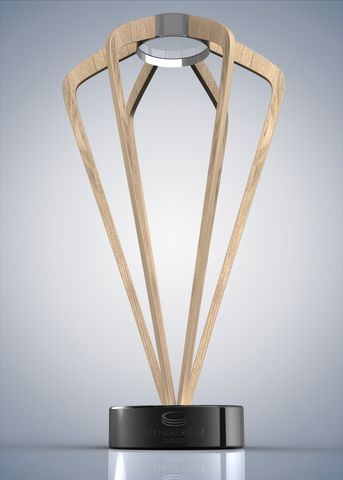
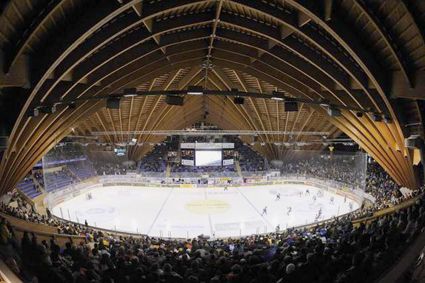
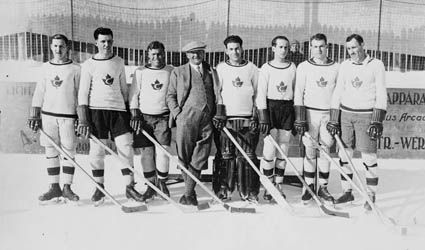
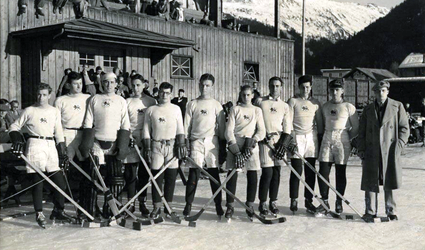
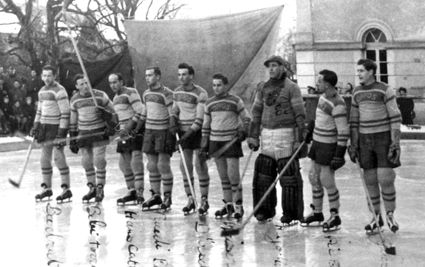
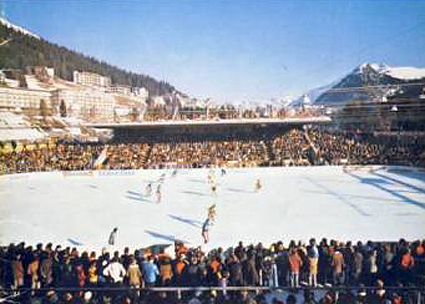
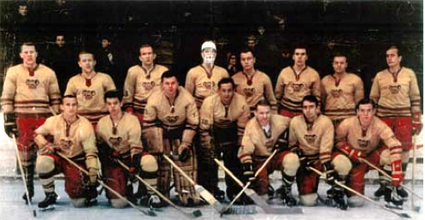
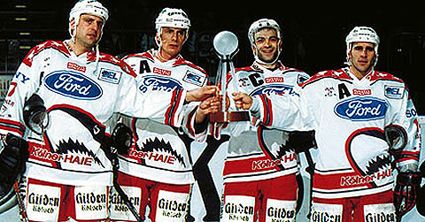
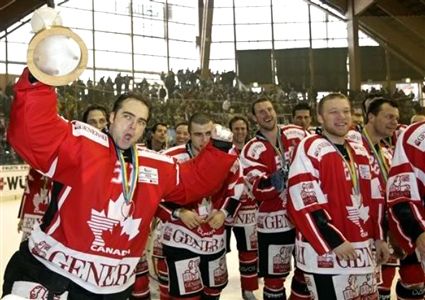
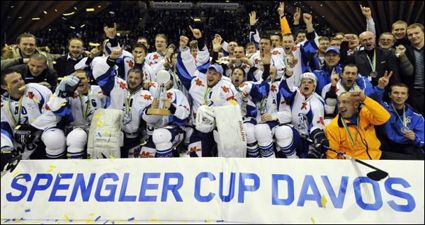
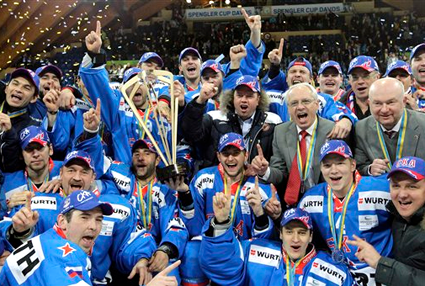
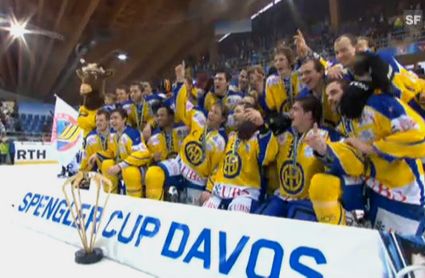
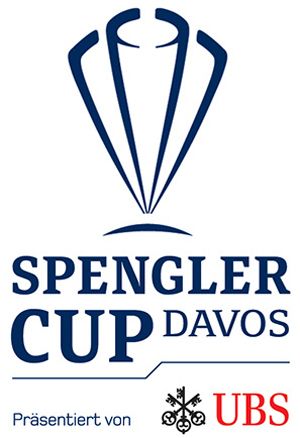
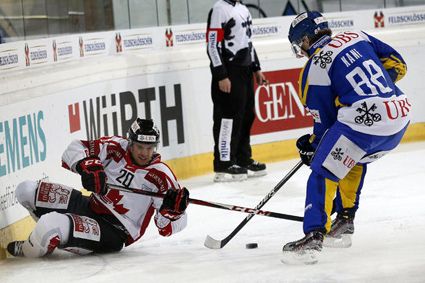
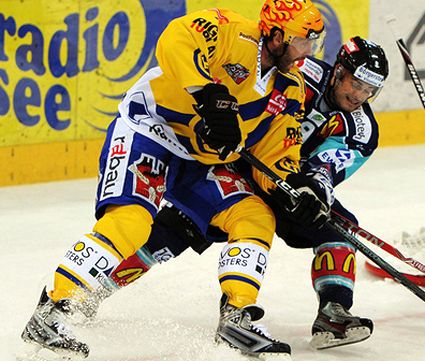
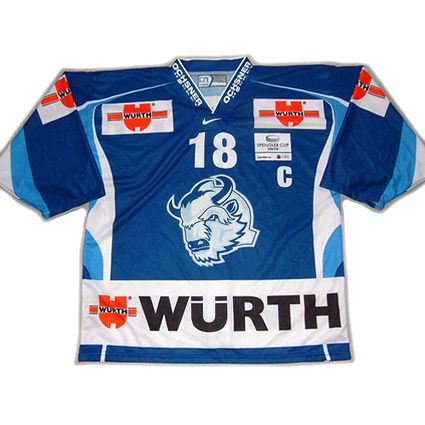
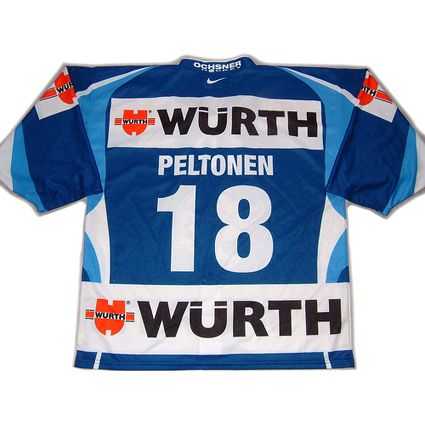










I found this really late, but thanks for the info and history. Seems like an interesting tournament.
ReplyDelete